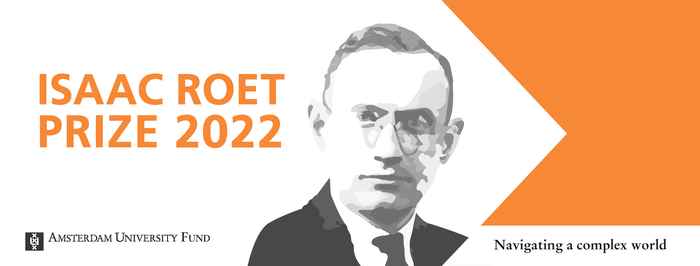Empowering young people
Award Ceremony Isaac Roet Prize 2022
- Date
- 10 November 2022
- Time
- 17:00 -18:30

Youth and their neighbourhoods
How teenagers experience their neighbourhood influences their emotional development. Do they feel safe and can they express themselves? Often neighbourhood places reflect the values of adults and not of teenagers. Or they are tuned to young children but not this age group in between.

In the Bronx and Almere teenagers worked with researchers, architects and artists to turn this around. Together they worked on environments that do reflect their values and make them feel at home. Francesca Ranalli, PhD candidate Urban Planning at the University of Amsterdam and winner of the Isaac Roet Prize 2021, will share the insights and lessons of this project. ‘A key element emerging from my overall research is the importance to build intergenerational spaces of encounter. Everyone agreed that teenagers are an important and understated part of neigbourhood life.’
Make repair the new cool
Fast fashion is exploding and comes with poor working conditions, increased GHG emissions, and degraded ecosystems. Policy, industry, and consumer efforts are needed for systemic change toward circular clothing consumption. One critical behavior change is that people in high-income countries buy less clothing.

Anna Bosshard, PhD candidate in Social/Environmental Psychology at the University of Amsterdam, receives the Isaac Roet Prize 2022 to organise and evaluate repair workshops that enable and motivate young residents of Amsterdam to reduce their clothing consumption: How to care for clothing and fix what is broken? How to make new combinations with clothes we’ve had for a long time? ‘By giving practical advice in a communal setting, we hope to empower participants that they (and others) don’t need new clothes all the time.’ She will organise these workshops together with the United Repair Centre in Amsterdam of Makers Unite.
Programme
- Opening by Agneta Fischer ( Dean of the Faculty of Social & Behavioural Sciences and jury member)
- ‘Young people and their neighbourhoods’, Presentation by Francesca Ranalli (winner Isaac Roet Prize 2021)
- Award ceremony Isaac Roet Prize 2022
- ‘Make repair the new cool’, presentation by Anna Bosshard, winner Isaac Roet Prize 2022
- End and drinks
Join this event and register
Would you like to attend? register through the link below. For questions you can contact Karen Kraal : k.kraal@uva.nl

About the Isaac Roet Prize
Isaac Roet was an alumnus of the Municipal University (Gemeente Universiteit), which was later to become the University of Amsterdam, and was a registered accountant as well as an inventor. On 3 June 1927, he recorded in his will that one-fifth of his estate should be used for a contest aimed at ‘fostering world peace and a more efficient distribution’. Isaac was murdered in Auschwitz on 11 February 1944. Isaac’s will came into effect after the war and the municipality of Amsterdam received a sum of 10,000 guilders, on the condition that the university would allocate it to the prize. The estate was later transferred to the Amsterdam University Fund (AUF) and was converted into a separate fund: the Isaac Roet Fund. The Isaac Roet Prize was awarded for the first time in 1989, in the Peace Palace in The Hague.
Together with the Faculty of Social and Behavioural Sciences, the AUF endeavours to award the Isaac Roet Prize every year to a special project that contributes to a better world.